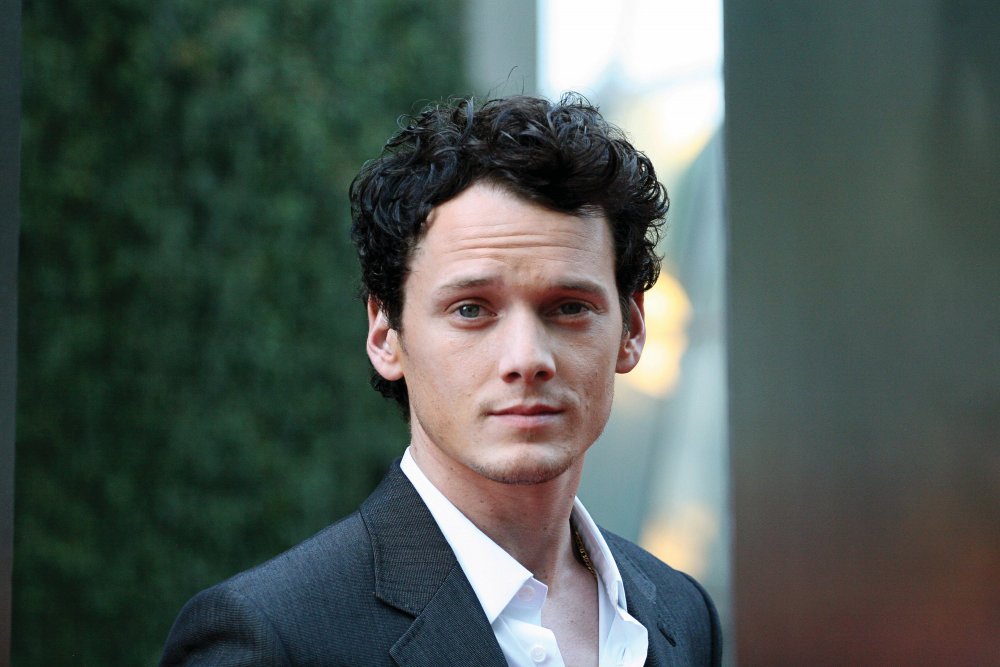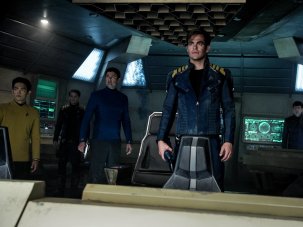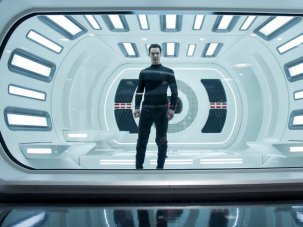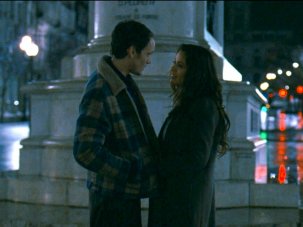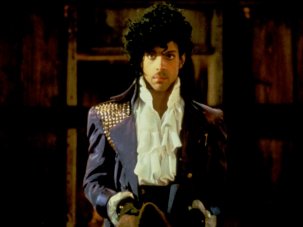The day after Prince died, I happened to catch a moving screening of Jeremy Saulnier’s punk-band horror thriller Green Room (2015) in the ArcLight cinema in Hollywood. If you’ve not seen it, one of the film’s threads is that perennial test of musical fandom – which one musician or musical group would you keep with you on a desert island? To begin, the film’s various hardcore punkers pick their expected choices – Poison Idea, The Misfits – though the film’s star, a superb Anton Yelchin, is more contemplative. When they’re later trapped in the titular green room by sundry Nazi skinheads and a dog of death, the question is again put to them under duress, which brings out the unvarnished truth. “Simon & Garfunkel!” one blurts out. And the badass of the band (Joe Cole), the guy who in another movie would lead the group to victory, spills his heart: “Prince!”
The ArcLight audience let out a collective “Aw!” and clapped, mourning the shocking loss of a genius while celebrating that even a punker would love Prince (of course he would). Later writer-director Saulnier released a statement expressing how moved he was by this accidental tribute and the spontaneous applause it received in various cinemas.
Nearly two months later, Saulnier released another tribute, one more personal to him: Anton Yelchin had passed away. Goddamnit. How could this happen? All young death is tragic but that he died in such a terrible accident, and at such a promising time in his career, when he was so artistically productive and curious and wonderful, was too awful even to think about.
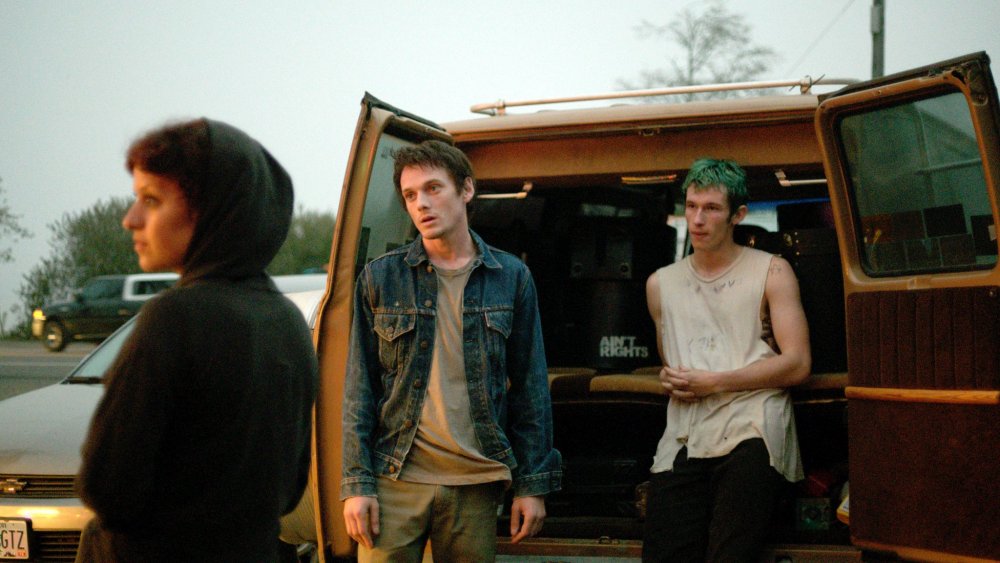
Anton Yelchin (centre) in Green Room (2015)
Green Room wasn’t the only film tribute to the talented young man that summer. Star Trek Beyond was to be released in July, and producer J.J. Abrams expressed a moving statement of loss towards his (and our) beloved new Chekov. Statements and in memoriams poured out of Hollywood from editorials, fans and filmmakers, even people who just knew him from around Los Angeles.
Yelchin’s parents were former figure skaters and sometime stars of the Leningrad Ice Ballet who had already endured years of oppression by the Soviet authorities because of their Jewishness when, for the sake of their six-month-old son Anton, they decided to sell all their worldly goods and emigrate as refugees to Los Angeles in 1989, following on the heels of Yelchin’s illustator uncle Eugene.
“The move was brutal for them and very difficult. But they did it so I could grow up here and have a better life than they did,” Yelchin told the Daily Beast’s Marlow Stern in a 2011 interview. And Yelchin proved his talent early. His parents proudly encouraged their child as he pursued his bright, multi-faceted career, starting out a child actor in movies such as Along Came a Spider and Hearts in Atlantis (both 2001). He was soon making interesting decisions, doing big-budget movies as well as independents, as his curiosity about both life and film grew.
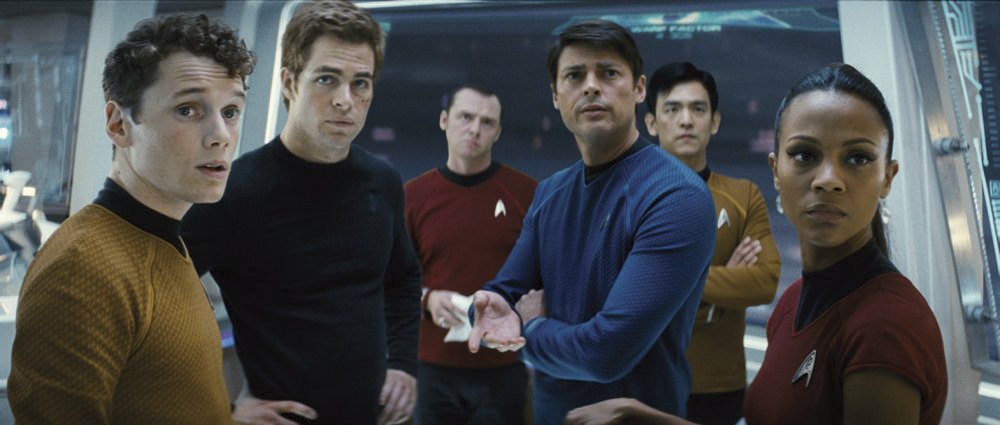
Star Trek Beyond (2016)
Yelchin was a unique face and presence in movies. Not a standard leading man, but one who could helm a picture no problem; his gorgeous, expressive eyes and curious smile drew you in. Depending on the role, his eyes seemed to hold a secret he would never tell you or one he needed to reveal. He was open, but also subtle and mysterious, which is why his sensitive lead in Green Room was so perfect, much like nervous, wide-eyed Jon Voight becoming the hero of Deliverance when you might think it would be the wilier, tougher Burt Reynolds.
Yelchin was a sort of sneak attack, adding depth, intelligence, edge and a sweetness that felt genuine and lived-in to great movies (Star Trek Into Darkness, 2013; Only Lovers Left Alive, 2014; Green Room) or ones that could have seemed flimsy or melodramatic but weren’t, partially because the movies were actually good, partially because of Yelchin’s centring, soulful presence (Alpha Dog, 2005; Charlie Bartlett, 2007). There was nothing false about his work, largely because he seemed curious and smart (and in real life, he was).
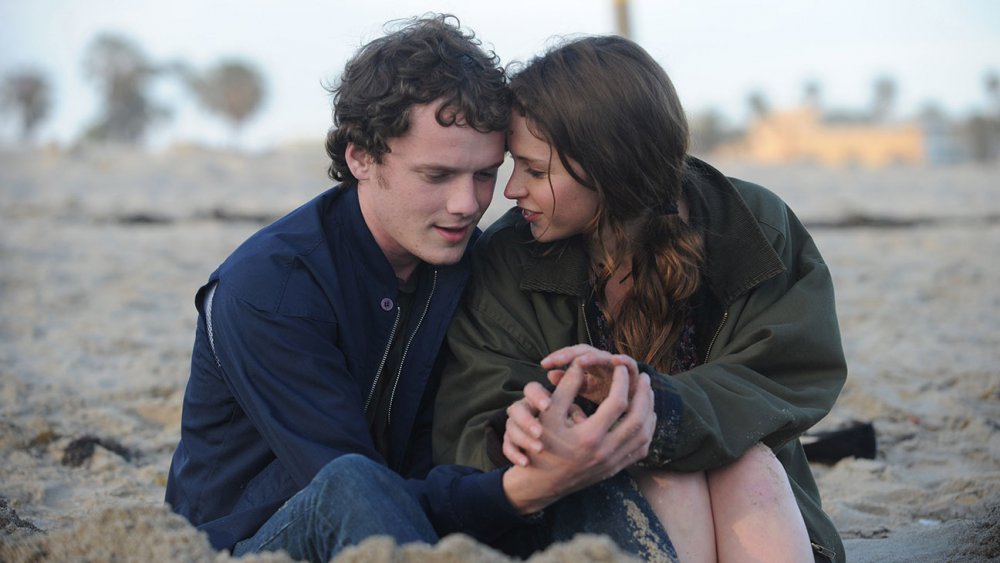
Anton Yelchin and Felicity Jones in Like Crazy (2011)
His role in the largely improvised indie Like Crazy (2011), a movie that could have been corny and tiresome thanks to its tedious long-distance pillow talk, raised it to something relatable and stirring.
His victim in Alpha Dog is a powerful depiction of adolescent excitement, rebellion and confusion – never once do we doubt why this kid would agree to be kidnapped, and believe his captors would keep him safe. Hanging out with a tough, tattooed Justin Timberlake, making out with girls, partying, showing off his fight moves – he’s having fun but he’s hiding his fear. We get it, even with doom hanging over every bong hit. When he’s driven off to be killed, we know what’s coming, but he doesn’t, so when he says that he loves his mom and why, it’s one of the most moving scenes in the film. It catches you offguard and you realise he’s just a kid. This all comes so naturally to Yelchin, moments often taken for granted, but these things aren’t easy to do. Yelchin was a natural.
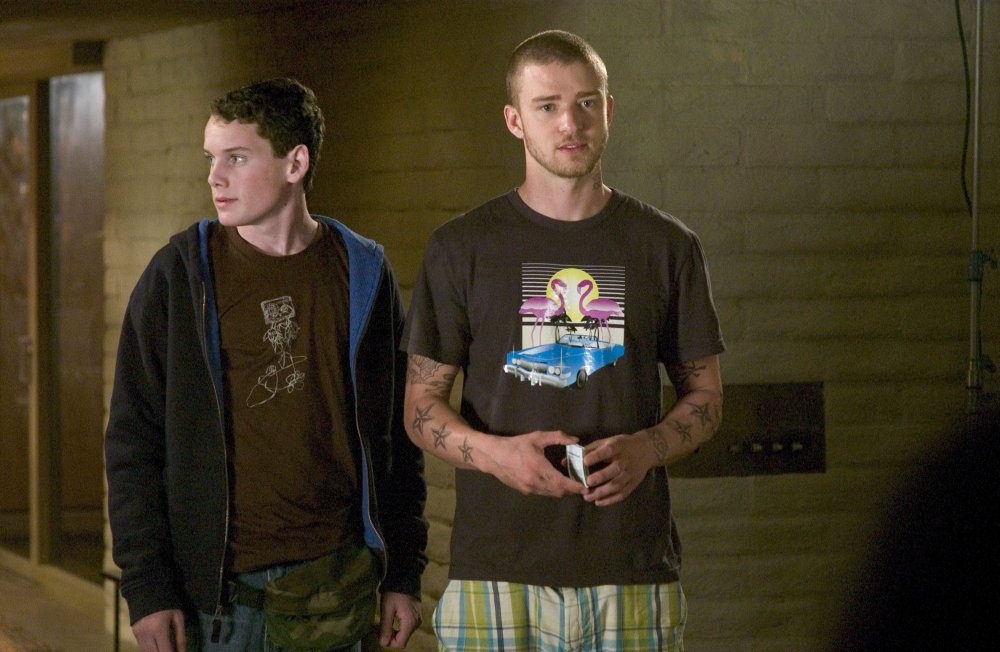
Anton Yelchin with Justin Timberlake in Alpha Dog (2006)
Yelchin was also a true cinephile, a musician, a photographer and an aspiring director himself. He acted in short films (including Gillian Horvat’s Kiss Kiss Fingerbang), frequented Los Angeles’s revival cinemas and contributed to classic DVD releases, narrating a documentary on Fred Zinnemann’s High Noon.
I rewatched Green Room over the holidays and marvelled again at Yelchin’s performance – the one band member who makes it all the way to the end, the one we connect with most. We watch his fear, realistic bravery (that panicked phonecall), vulnerability, cynicism and humour. He’s the one we rooted for so much that, when the desert island music question is raised again, its near-punchline (Creedence Clearwater Revival’s Sinister Purpose – was this his choice?) felt less funny and more painful. That much talent? With that much ahead of him at 27 years old? Not fair, world.
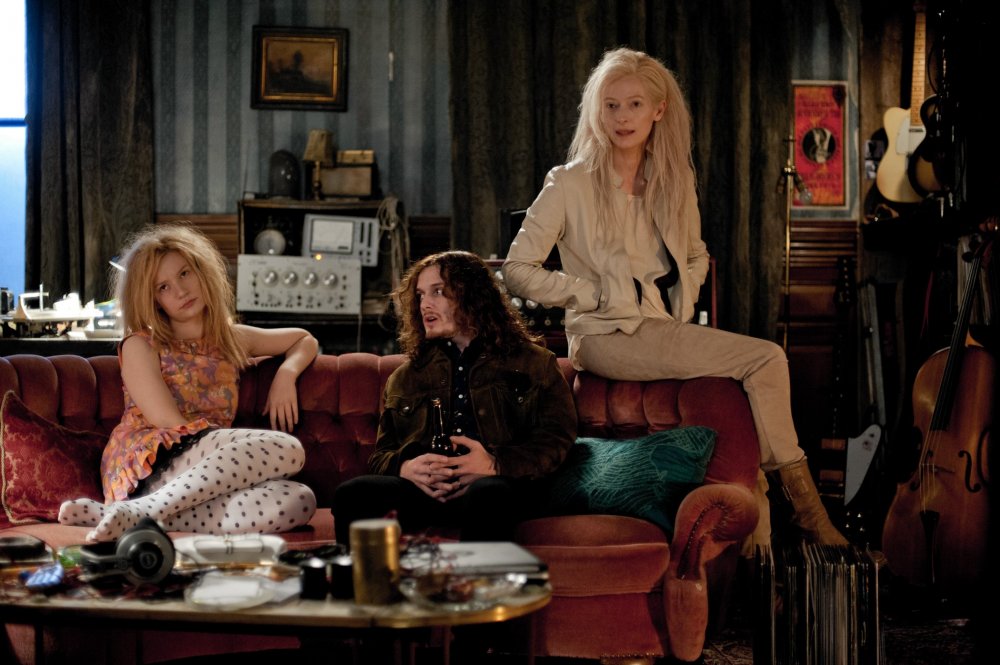
With Mia Wasikowska and Tilda Swinton in Jim Jarmusch’s vampire lounge drama Only Lovers Left Alive (2013)
I reached out to director Joe Dante, who directed him wonderfully, in the 2015 horror comedy Burying the Ex. Dante, a film historian himself, was so lovely regarding Yelchin that I’ll end with his words:
“I don’t believe we’ll ever realise the dimensions of the tragedy of his inexplicable loss. I can honestly say I never enjoyed working with an actor more than I did with Anton. Dedicated, curious, optimistic and completely engaged. He’d come to set even when he wasn’t working. Sometimes you meet people who you just click with – and we certainly did.
“His insatiable quest to see every old movie extant was just one of the traits that endeared him to me and reminded me of myself at his age. He was going through his silent film/pre-Code phase and I turned him on to a lot of DVDs, which he seemingly watched through the night, only to turn up on set full of questions and opinions. He even managed to sneak into the movie some ad libs about Bela Lugosi, who seemed to fascinate him.
“But acting was only one of his interests – he was a talented photographer (there’s an exhibition still going on about five blocks from my house) and musician, and he was getting ready to direct his first movie. That’s what I mean about the extent of our loss… Anton had a terrific future ahead of him, and his loss is our loss. I was proud to be even a small part of what will come to be known as his legacy. And I miss him.”
-
The Digital Edition and Archive quick link
Log in here to your digital edition and archive subscription, take a look at the packages on offer and buy a subscription.




